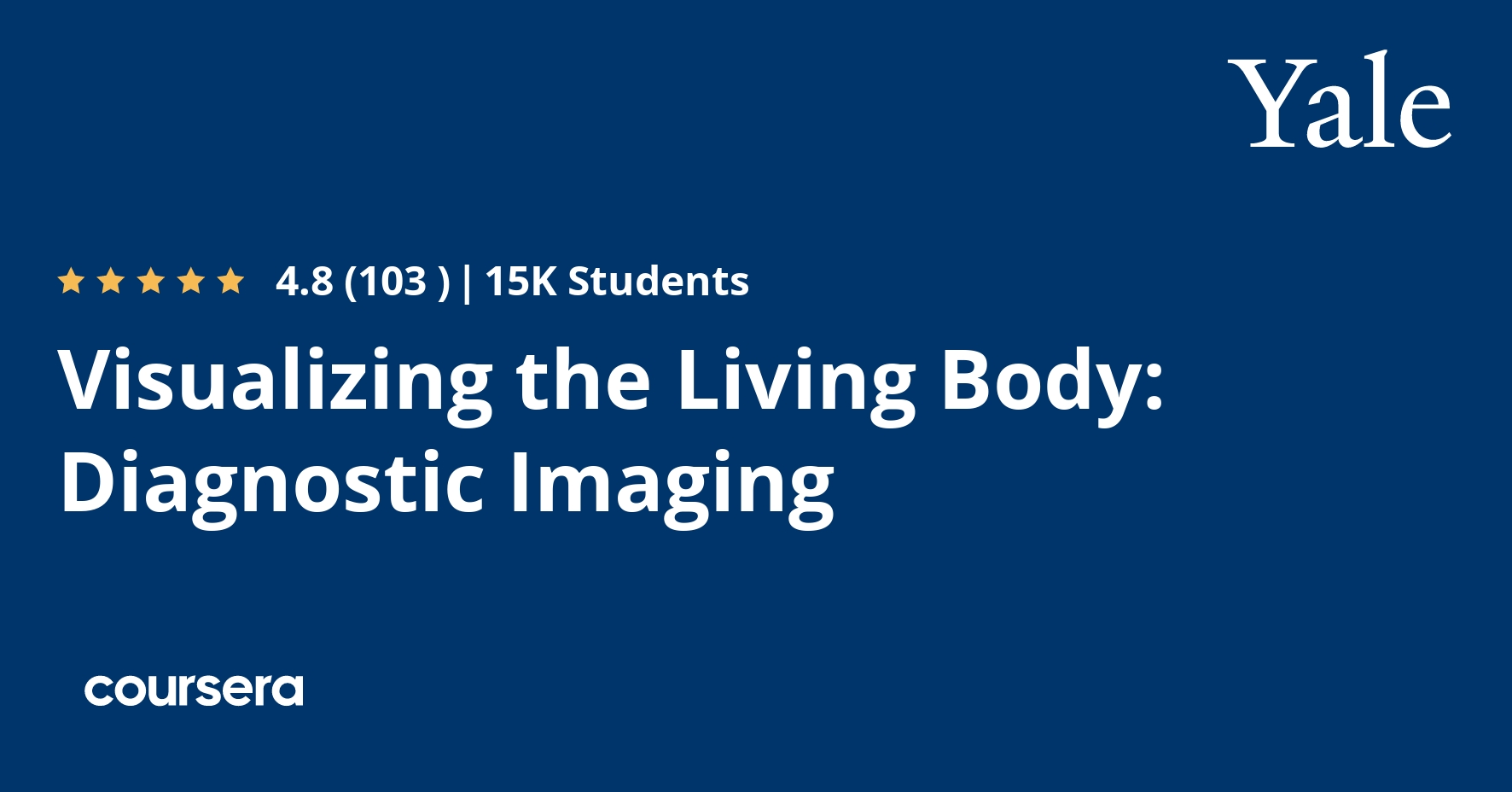Description
This course teaches learners the underlying principles behind conventional radiography, computerized axial tomography (CT), magnetic resonance imaging (MRI), and ultrasound. The radiology of chest, abdomen, pelvis, extremities, spine and brain are taught in this course using a combination of lectures and extensive practical activities and assessments.
By the end of the course you will be able to:
Describe the principles of conventional radiography, CT MRI and ultrasound
Describe systematic approaches to imaging interpretation
Describe the use of windowing in CT
Describe sequences in MRI and their relevance.
This course is part 4/4 in the Yale Human Anatomy Specialization.
Topics covered in the lectures include: Introductions to conventional radiography, computerized tomography (CT), ultrasound, magnetic resonance imaging (MRI), chest radiology, CT of chest, chest radiology: introduction to pathology, normal CT anatomy of the abdomen, renal anatomy, colon cancer, renal neoplasm, normal pelvic imaging, normal male pelvis imaging, normal female pelvis imaging, radiology of the upper extremities, radiology of the lower extremities, musculoskeletal imaging modalities, introduction to spine radiographs, skull radiography, brain CT imaging fundamentals, brain CT imaging pathology, brain: magnetic resonance imaging (MRI), and brain MRI pathology
What you will learn
Introduction to Radiology
In this module you’ll learn the principles of diagnostic imaging, be introduced to conventional radiography, computerized tomography (CT), ultrasound, and magnetic resonance imaging (MRI)
Chest Radiology
This module covers chest radiology, CT of chest, and an introduction to chest radiology pathology
Abdomen Radiology
This module covers normal CT anatomy of the abdomen, renal anatomy, colon cancer, and renal neoplasm
Pelvis Radiology
This module covers normal pelvic imaging, normal male pelvis imaging, normal female pelvis imaging,





